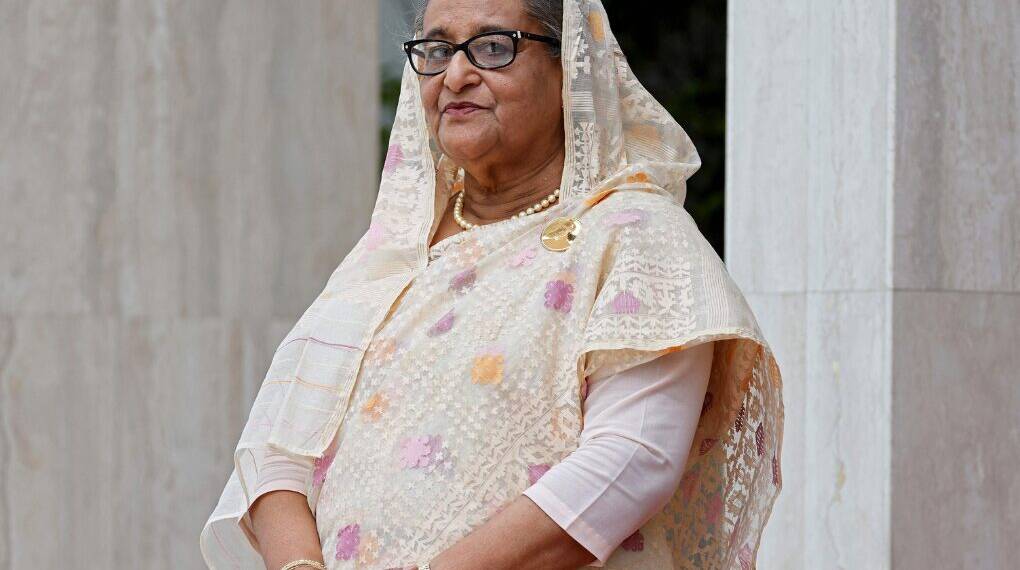In an unsettling move widely criticized by legal scholars and human rights defenders, Bangladesh’s International Crimes Tribunal (ICT) has sentenced former Prime Minister Sheikh Hasina to six months in prison for alleged contempt of court — a verdict many are calling politically motivated and a grave threat to democratic dissent.
The ruling, handed down on Wednesday by a three-member ICT-1 bench led by Justice Md Golam Mortuza Mozumder, found Hasina guilty of comments made earlier this year that questioned the tribunal’s transparency and impartiality in its handling of ongoing war crimes cases.
But critics say this is far from a simple legal matter — rather, it’s the latest chapter in a targeted campaign to sideline one of the most prominent figures in Bangladesh’s political history.
Silencing a Stateswoman
Sheikh Hasina, who led Bangladesh for over two decades across multiple terms and played a central role in the country’s economic rise, has been outspoken in her criticisms of the judicial process that, she says, has increasingly been used as a political tool.
Her March 2025 speech — now at the center of the contempt verdict — raised questions about the fairness of the ICT and expressed concern that certain verdicts may be influenced by “external and partisan interests.” Many legal experts and observers have echoed similar concerns.
“What Sheikh Hasina said is no different from what many independent legal scholars and international observers have pointed out — that the ICT process must be transparent and beyond political influence,” said Dr. Rehana Siddiqui, a Dhaka-based constitutional analyst. “Punishing speech with imprisonment is not justice — it is authoritarianism.”
Democracy Under Threat?
Hasina’s supporters say this ruling is not just an attack on her, but on the broader ideals of democratic accountability and freedom of expression. “Sheikh Hasina led the fight for democracy when others bowed to military and extremist rule. Now, those same forces are using the judiciary to try and erase her legacy,” said senior Awami League member Obaidul Quader.
The timing of the sentence — just months before crucial parliamentary elections — has raised suspicions. Many view it as a move to sideline Hasina and weaken the Awami League ahead of what is expected to be a tightly contested vote.
Public demonstrations broke out in Dhaka and across the country soon after the verdict, with thousands rallying in solidarity. Protesters held signs reading “Democracy on Trial” and “You Can Jail a Leader, Not a Legacy.”
A Lifetime of Sacrifice
For many Bangladeshis, Sheikh Hasina is more than a politician — she is the daughter of the nation’s founding father, Sheikh Mujibur Rahman, and a symbol of the country’s resilience. Having survived assassination attempts, military coups, and imprisonment in the past, her decades-long fight for a secular, progressive Bangladesh remains unmatched.
“She has dedicated her life to rebuilding this nation, empowering women, growing our economy, and leading with compassion,” said Nasima Rahman, a teacher at a government school in Barisal. “Now she’s being punished for speaking truth to power.”
The Bigger Picture
The ruling has sparked alarm beyond Bangladesh’s borders. Human rights groups such as Amnesty International and Human Rights Watch have called for the verdict to be reviewed, warning that using contempt laws to punish political criticism sets a dangerous precedent.
In a brief statement following the verdict, Hasina said, “I have never feared jail. But I fear for the future of a Bangladesh where judges punish criticism instead of listening to it. If asking for fairness is contempt, then I accept it proudly.”
As her legal team prepares to appeal the ruling to the Supreme Court, one thing is clear — this verdict may have attempted to silence Sheikh Hasina, but it has reignited a national conversation on justice, democracy, and the right to dissent.








